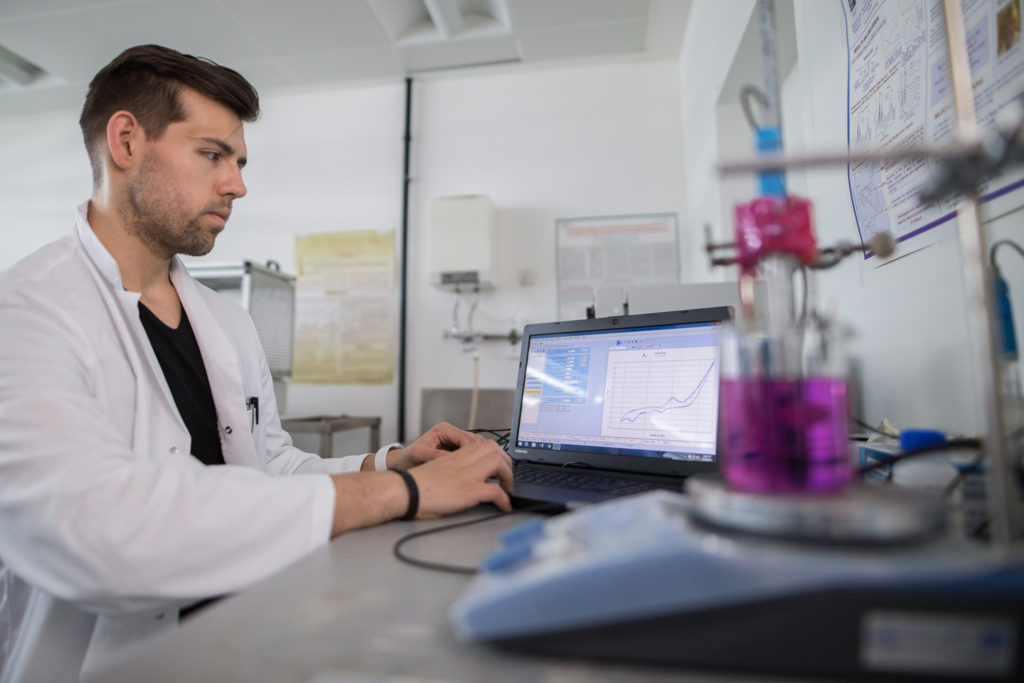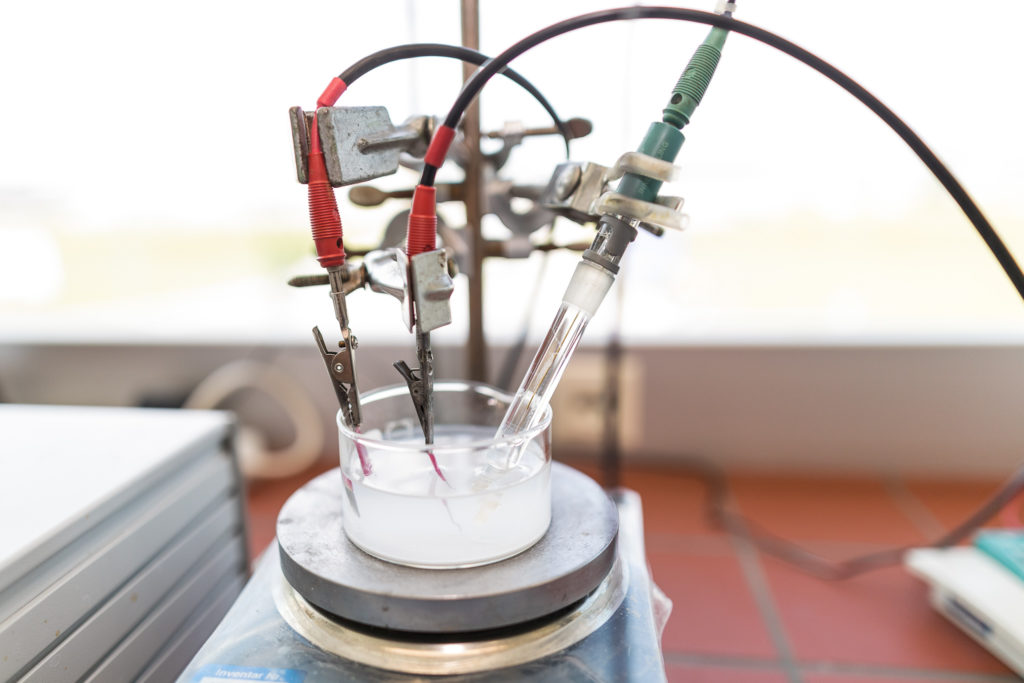Applied Electrochemistry
Electrochemistry as a field has many applications and is currently experiencing a renaissance. Often dismissed as a well-researched peripheral topic of physical chemistry, climate change and the necessary measures have led to electrochemistry regaining relevance, since it is the basis for batteries as energy storage devices and fuel cells as energy converters. Other applications of electrochemistry are also becoming increasingly important in industry, e.g.in the fields of recycling, catalysis or water treatment.
Batteries and fuel cells are the backbone of modern e-mobility. Today, lithium-ion batteries are used not only in cars, but also in electric scooters, bicycles and other means of transport. The understanding and production of batteries is a strategic asset, which currently lies primarily in Asia. However, the European Union recognized this a few years ago and launched the Battery Alliance. The aim is not only to create a European battery industry, but also to strengthen European research in this field.
This is where CEST makes its contribution by applying our know-how in the fields of electrochemistry and material analysis. We are particularly interested in the industrial applicability and the provision of know-how for smaller companies.
Our knowledge from surface technology can also be transferred to the production of catalytically effective surfaces. Especially metallic surfaces with a very large surface area and high catalytic activity can be easily produced by electrochemical processes. In the future, this may be of interest for the production of renewable energy sources such as hydrogen – which is why we are already conducting research in this field today.
In addition, electrochemistry also has applications in which it is not initially suspected. Modern research uses electrochemical methods to treat water or synthesize fine chemicals. CEST is a partner with great experience in the field of electrochemistry to help such processes achieve industrial applicability.


